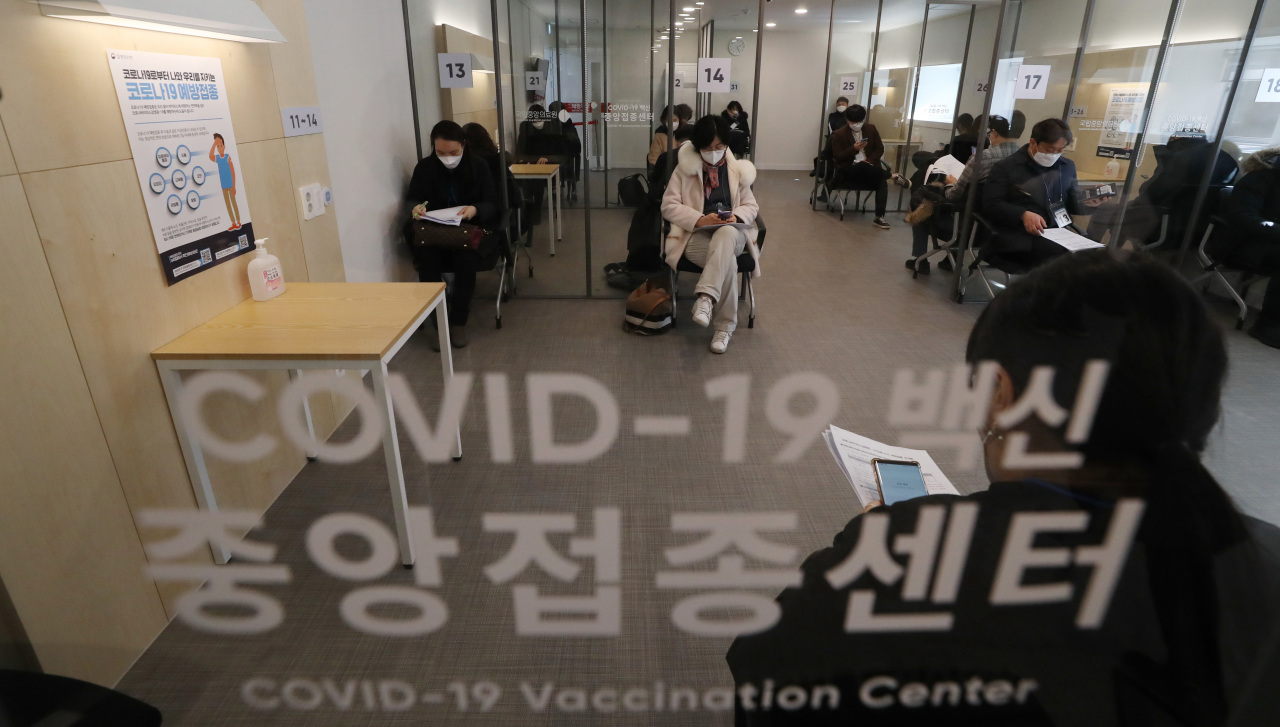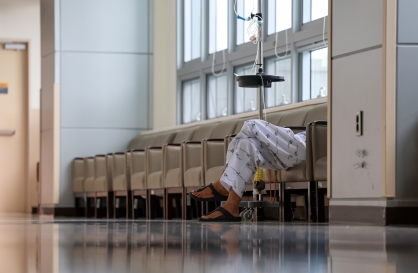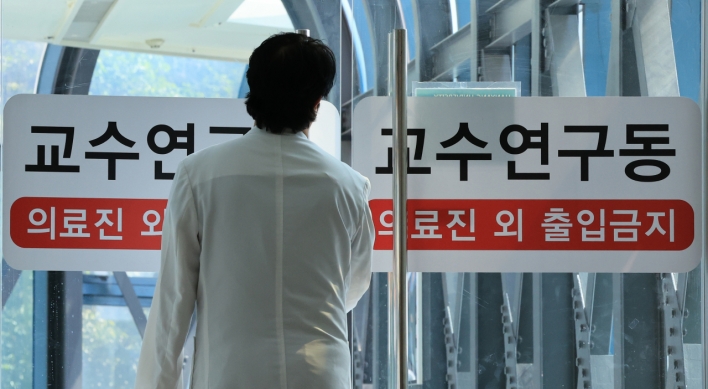
The National Medical Center, which will be administering South Korea’s first COVID-19 jabs, conducted a trial run of their rollout on Tuesday in Seoul, with the goal of achieving up to 600 vaccinations a day.
Once prospective vaccine takers step into the hospital’s vaccination center, they will be first checked for symptoms and be required to sanitize their hands. Then they will be asked to present their IDs and be verified for eligibility at the reception.
The medical staff will examine them to check they are in a condition fit to be vaccinated and then explain to them possible side effects from the vaccine. In a separate compartment, they will be given the shots and are required to stay seated for 15 minutes.
In rare cases of faintness or allergic reactions, emergency medical responders will provide immediate care or transport the individuals to a hospital if deemed necessary.
From registration to administration, the process takes at least 30 minutes for every recipient. People with medical conditions may have to stay 15 minutes longer for post-vaccination monitoring.
The state hospital says Tuesday’s trial run was meant to “rehearse in advance the aim of carrying out 600 vaccinations a day, which translates to 50 people every 30 minutes.” On Tuesday, it took the team of four doctors, four nurses and two assistants 47 minutes to complete the entire process for 51 people.
The walking route inside the building was designed to minimize contact between people. Despite the chilly weather, windows were kept open slightly to allow ventilation.
“It is estimated that once the 250 vaccination centers open across the country, they could together deliver 150,000 vaccinations per day,” said Dr. Oh Myoung-don, who heads the hospital’s vaccination center.
He stressed particular caution with the Pfizer vaccine, which has to be used in six hours after being thawed and diluted.
“There should be a system of confirming appointments a day prior to the scheduled date so that none goes to waste,” he said.
“There are going to be people who may experience vaccine side effects such as chills, headache, low-grade fever -- which may just as well be symptoms of COVID-19. So health care workers have to take that possibility into consideration,” he added.
Korea is set to receive 1.5 million doses of the AstraZeneca vaccine on Feb. 24, and their administration will begin two days later, the KDCA said Tuesday.
Addressing questions regarding the AstraZeneca vaccine for older adults, Oh said he does not see “any red flags yet.”
The 117,000 doses of the Pfizer vaccine, which Korea will be receiving through the WHO-led COVAX program, are also expected to arrive in the next couple of weeks, the KDCA said.
As both vaccines require two doses per treatment, together they would be enough to cover around 810,000 people.
The KDCA said 776,900 residents at long-term care facilities will be vaccinated by the end of March, although the Ministry of Drug and Safety is still deciding whether to give the AstraZeneca vaccine to people over the age of 65.
The vaccine recipients in Korea will be issued a certificate indicating that they have been vaccinated.
By Kim Arin (arin@heraldcorp.com)



![[KH Explains] Will 6-day workweek for executives help Samsung avert crisis?](http://res.heraldm.com/phpwas/restmb_idxmake.php?idx=644&simg=/content/image/2024/04/21/20240421050096_0.jpg&u=20240421164408)


![[AtoZ into Korean mind] Humor in Korea: Navigating the line between what's funny and not](http://res.heraldm.com/phpwas/restmb_idxmake.php?idx=644&simg=/content/image/2024/04/22/20240422050642_0.jpg&u=)





![[Herald Interview] Why Toss invited hackers to penetrate its system](http://res.heraldm.com/phpwas/restmb_idxmake.php?idx=644&simg=/content/image/2024/04/22/20240422050569_0.jpg&u=20240422150649)






![[Herald Review] Xdinary Heroes kicks off five-month-long project with solo concert, teases new album](http://res.heraldm.com/phpwas/restmb_idxmake.php?idx=652&simg=/content/image/2024/04/22/20240422050539_0.jpg&u=20240422152154)
![[Today’s K-pop] Illit logs 100m Spotify streams with debut song](http://res.heraldm.com/phpwas/restmb_idxmake.php?idx=642&simg=/content/image/2024/04/22/20240422050650_0.jpg&u=)